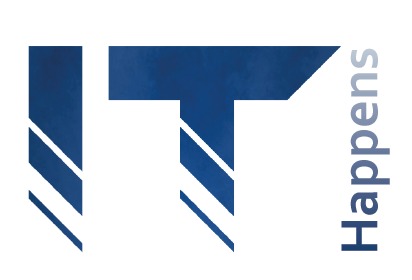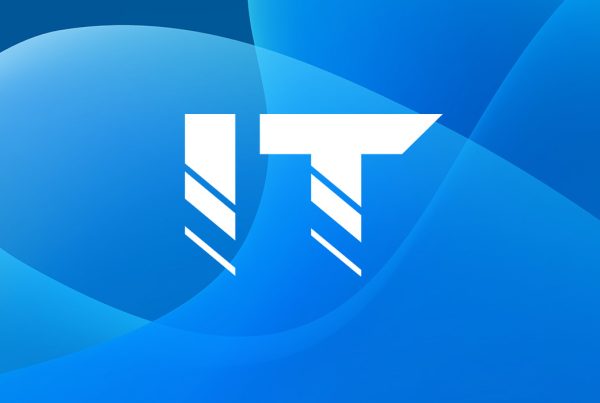ITHappens Thesis series: Linsy Schopman
In the dynamic realm of the video game industry, where innovation and creativity drive success, understanding the relationship between users and developers is crucial (Beattie, 2021). This article explores the impact of user innovation, specifically the role of modifications or “mods”, and delves into the motivations that drive voluntary contributors to shape the gaming landscape. Furthermore, we examine the unique influence of financial incentives, particularly donation-based funding (DBF), in fostering user innovation and its implications for the industry.
About the author
This article is based on the outcomes of the thesis of Linsy Schopman. She is an alumnus of the Master Information Management at Tilburg University, and an active member of Asset | SBIT. She won the best thesis award of the Information management students who did their thesis in the first semester of 2023.
Why this topic?
Linsy chose this topic because she has been a gamer since childhood, and gaming has always served as a genuine outlet for relaxation. To her, gaming represents the ultimate form of entertainment, especially in single-player games where she can immerse herself in captivating stories and characters. Modding games is a fascinating avenue for her to tailor the ultimate gaming experience to her preferences, and the fact that modders do it out of passion rather than for financial gain adds an extra layer of significance.
If you are still looking for a suitable thesis subject or want to gain some inspiration, then also have a look at ITHappens’ guide to the ‘finding a suitable thesis subject article‘!
The video game industry landscape
As of 2022, the video game industry is the largest entertainment sector globally, with a staggering $184.4 billion in sales and 3.2 billion players (Newzoo, 2022). A significant player in this landscape is the PC gaming market, constituting 22% of the industry and generating $40.5 billion in 2022 (Newzoo, 2022). However, the industry faces challenges, primarily due to increasing development complexities and costs driven by technological advancements (Lee et al., 2020). Games can now incur production and marketing costs in the tens of even hundreds of millions of dollars, necessitating strategies to combat rising expenses.
User innovation in video games
A remarkable and enduring form of user innovation within the gaming community is the creation of mods. These player-made alterations and additions to existing games have been a staple of the PC gaming community of over two decades (Sotamaa, 2010). The collaborative efforts of user communities contribute novel concepts, enhance gameplay experiences, and extend the lifecycle of video games. The Elder Scrolls V: Skyrim and The Witcher 3: The Wild Hunt exemplify how mods, even years after initial release, continue to inject fresh content into games through collaboration between developers and the gaming community.
Motivations of user innovators
Central to the thriving modding community is the passion and dedication of user innovators. Their motivations range from artistic expression and community contribution to enhancing personal enjoyment and building skills that could lead to careers in the video game industry (Jeppesen, 2004). Survey findings echo these motivations, indicating that mod creators, or “modders”, engage in collaborative activities, striving to improve games for themselves and the community. This aligns with the broader concept that user innovations often stem from the desire to address specific needs unmet by commercial products (von Hippel, 1986).
The effect of financial incentives
While intrinsic motivations drive many user innovators, the introduction of financial incentives adds a layer of complexity. The donation-based funding (DBF) model, exemplified by Nexus Mods’ “donation point system”, provides tangible support to mod creators (Scott, 2018). Nexus mods has distributed over $4.8 million to mod authors as of 2023, reflecting the gaming community’s desire to acknowledge and reward creative contributions.
The impact of DBF on the treatment platform
Nexus Mods, a leading mod distribution platform, implemented the DBF system in May 2018. This innovative approach rewards mod creators based on the monthly count of unique downloads, creating a sustainable model for user innovation (Scott, 2018). The community’s response underscores the importance of acknowledging the efforts of mod authors. This system not only fulfills the desire for tangible recognition but also creates a collaborative ecosystem where users actively contribute to a monthly pool of donations.
Empirical results: unveiling the impact
Empirical findings from Nexus Mods reveal a compelling story. DBF has a significant positive impact on both the quantity and quality of video game mods. Contrary to conventional wisdom, the data challenges the notion that financial incentives may negatively affect the quality of user contributions. The positive correlation between financial incentives and increased user contributions, observed in Nexus Mods, underscores the potential of DBF to stimulate innovation in the gaming industry.
The introduction of DBF: voices from the community
The introduction of DBF on Nexus Mods aimed to fulfill a longstanding desire among mode authors for tangible recognition (Scott, 2017). Modders express that donations serve as a measure of the value their work brings to millions of players. One modder, hothtrooper44, states, “Donations are certainly one way I understand the extent my work is valued by the millions of players who use it. The greatest joy that comes with creating mods is knowing that you have brought joy to others” (Scott, 2018). This sentiment reflects the profound impact financial incentives can have on user innovators in the gaming community.
Theoretical & practical contributions
This research contributes significantly to the understanding of user innovation in the gaming industry. By empirically demonstrating the positive impact of financial incentives, specifically DBF, on both the quantity of user-generated content, the study challenges prevailing assumptions (Poor, 2014). The findings offer fresh perspectives on the motivations of user innovators and highlight the potential effectiveness of financial incentives in stimulating creativity in creative fields (Sotamaa, 2010).
Conclusion
As the video game industry continues to evolve, user innovation emerges as a powerful force shaping its trajectory. The collaborative efforts of modders, driven by passion and dedication, contribute not only to the extended lifecycle of games but also offer valuable insights for developers. Financial incentives, exemplified by Nexus Mods’ DBF, stand out as a catalyst for user innovation, challenging traditional notions and fostering a collaborative ecosystem. Understanding the dynamics of user innovation in the gaming community not only enriches our appreciation for this creative space but also provides actionable insights for industry stakeholders aiming to leverage the collective creativity for the betterment of the gaming experience.
References
Beattie, A. (2021). How the Video Game Industry Is Changing. Retrieved January 19, 2023, from https://www.investopedia.com/articles/investing/053115/how-video-game-industry-changing.asp
Jeppesen, L. B. (2004). Profiting from innovative user communities.
Lee, D., Lin, D., Bezemer, C.-P., & Hassan, A. E. (2020). Building the perfect game – an empirical study of game modifications. Empirical Software Engineering, 25(4), 2485–2518. https://doi.org/10.1007/s10664-019-09783-w
Newzoo. (2022). Global Games Market Report 2022 (tech. rep.). Retrieved January 19, 2023, from https://newzoo.com/insights/trend-reports/newzoo-global-games-market-report-2022-free-version
Poor, N. (2014). Computer game modders’ motivations and sense of community: A mixed-methods approach. New Media & Society, 16(8), 1249–1267. https://doi.org/10.1177/1461444813504266
Scott, R. (2017). Mod Author Donation System. Retrieved February 21, 2023, from https://www.nexusmods.com/skyrim/news/13371/
Scott, R. (2018). Donation Points system now live for mod authors on Nexus Mods. Retrieved January 17, 2023, from https://www.nexusmods.com/news/13611
Sotamaa, O. (2010). When the Game Is Not Enough: Motivations and Practices Among Computer Game Modding Culture. Games and Culture, 5(3), 239–255. https://doi.org/10.1177/1555412009359765
von Hippel, E. (1986). Lead Users: A Source of Novel Product Concepts. Management Science, 32(7), 791–805. https://doi.org/10.1287/mnsc.32.7.791





